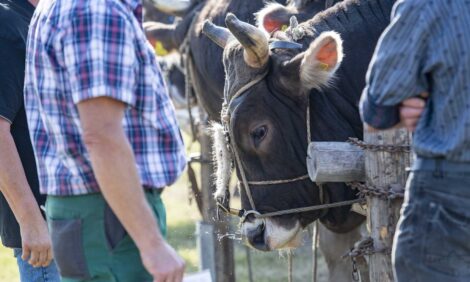



Strategically De-worm to Limit Parasite Burden
ANALYSIS - As cattlemen look to turnout stock into spring pastures, Andrew Skidmore, DVM at Merck Animal Health urges farmers that 'strategic deworming' can avoid a build up of parasites through the growing season, writes Michael Priestley, TheCattleSite editor.Parasite larvae have been dormant over the winter in a rested state but will start to become active when the growing season kicks in.
As cattle graze on new grass, animals become infected and reinfected. If nothing is done, it is young calves that are affected with growth rate and weight gain being hit.
Calf response to vaccination can also be impacted due to the effects of parasite burden on the calf's immune system.
Best advice is to treat cattle going on to pasture at turnout time and then repeat doses three to four weeks later, says Mr Skidmore. This strategy hits parasites as they start to emerge from their dormant state.
Andrew Skidmore, explains parasite cycles in pasture-based systems with Sarah Mikesell, 5m senior editor.
Michael Priestley
News Team - Editor
Mainly production and market stories on ruminants sector. Works closely with sustainability consultants at FAI Farms



